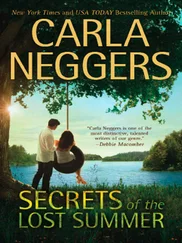
For Bill and Joan, with thanks
Cover
Title Page
Dedication
Part One
Chapter One
Chapter Two
Chapter Three
Chapter Four
Part Two
Chapter Five
Chapter Six
Chapter Seven
Chapter Eight
Chapter Nine
Chapter Ten
Chapter Eleven
Chapter Twelve
Chapter Thirteen
Chapter Fourteen
Chapter Fifteen
Chapter Sixteen
Chapter Seventeen
Chapter Eighteen
Chapter Nineteen
Chapter Twenty
Part Three
Chapter Twenty-One
Chapter Twenty-Two
Chapter Twenty-Three
Chapter Twenty-Four
Chapter Twenty-Five
Chapter Twenty-Six
Chapter Twenty-Seven
Chapter Twenty-Eight
Chapter Twenty-Nine
Chapter Thirty
Chapter Thirty-One
Chapter Thirty-Two
Chapter Thirty-Three
Chapter Thirty-Four
Part Four
Chapter Thirty-Five
Chapter Thirty-Six
Chapter Thirty-Seven
Chapter Thirty-Eight
Chapter Thirty-Nine
Chapter Forty
Chapter Forty-One
Chapter Forty-Two
Chapter Forty-Three
Chapter Forty-Four
Keep Reading
Acknowledgements
About the Author
Also by the Author
Copyright
About the Publisher
Part One
A red light on the side of the phone began to blink on and off, which meant that there was a call. Adam had switched the ringer tone onto mute because sometimes when it rang it startled the hell out of him. Now as he watched the light he made no move to pick up the receiver. It was late; past ten and he knew who it was. He wondered how long she would let it ring before she gave up. He could picture her standing in their living room at home or pacing back and forth from the kitchen. Her mouth would be clamped shut, her lips an unyielding line. The colour of her eyes would be vivid blue; they were a darker shade when she was angry. These days she was angry a lot.
He counted the flashes: seventeen, eighteen. Then the light went out. He waited to see if she would call back but the light remained off. Later, when he got home, or in the morning if she was asleep by then, she would ask where he’d been. He’d say he was working and she’d say she’d phoned, the suspicion in her voice cracking like a whip. He’d tell her he hadn’t noticed and then it would start; the familiar argument which would escalate and veer off in different directions but would ultimately come back to the same well-worn theme. He was never home. One day he’d come through the door and she would be gone and then maybe he would be sorry. Accusations flung like rocks. Work! It was always his fucking work! Well, what about her? What about them?
The office he rented was small. A long narrow room above a photography shop in Fulham. He didn’t need a lot of space. In fact as a freelancer he could have worked at home easily enough, which he had before he and Louise had married. In those days he could keep whatever hours he wanted. Now he had this place. He even kept a camp bed there for the nights when he was so exhausted he would begin to nod off as he worked.
The notes and pictures for the story he was working on were scattered messily along the long wooden bench that served as his desk. Transcripts of interviews with police, family, neighbours, friends, in fact almost anybody who had come into contact with Elizabeth Mount since she had vanished. Some of the photographs her parents had given him were pinned on the wall. He liked to see the faces of the people he was looking for whenever he glanced up. That way they remained real. They were people not merely names. The more he learned about them the better he felt he knew them. Often he knew more about them than their own families because he learned things from their friends that children rarely tell their parents. Usually about boys (if they were girls, and usually they were) or plans they had to go somewhere or do something their parents wouldn’t approve of.
Elizabeth was sixteen. Her friends called her Liz. Her birthday had been in April, three weeks after she’d vanished. It was late May now. The initial inquiry and attendant publicity had tapered off. The official view from the police was that she had run away. She had joined the thousands of others like her who fled their families and home towns each year for the cities, where they melted into the anonymous underbelly of society. Sometimes their families never heard from them again. They changed their names, became involved with drugs, prostitution, criminal activities. All the usual litany of the underclass.
It wasn’t as if Adam hadn’t heard the story before. He had files crammed full of notes about kids like Liz, mostly girls, though there were a fair percentage of boys too. Runaways. People sent him letters all the time. They used to phone as well until he made his number unlisted. He had a reputation now. Not only did he write about kids that went missing, sometimes he found them. Not always, but enough times that he had made this particular patch of expertise his speciality; he’d achieved a degree of minor fame. A couple of times he’d been interviewed on TV, and lots of times on radio. The families of the missing turned to him out of desperation, when nobody else would help. They asked him to find their children, and sometimes he did. The trouble is they were usually dead.
Was Liz dead? He didn’t know. She had vanished one morning on the way to school and hadn’t been seen or heard of since. But it turned out she’d taken a change of clothes with her that day. A witness reported seeing her on a train to London but she wasn’t wearing her school uniform. An anonymous caller had claimed she was living on the streets near Paddington. The police had her down as a runaway, but her family were adamant that she wasn’t the type. But then that was often the case. The family sometimes didn’t know what type their children were. Or didn’t care. Or were lying to cover up abuse. But then those people weren’t the ones who normally contacted Adam.
So far he’d spent five weeks looking for Liz, talking to everybody she had come into contact with. He knew that on the day she vanished she had got on a train to London. One of her friends had finally admitted to him in confidence that Liz had talked about doing it, though she maintained that Liz had meant to come back the same day. Adam didn’t know about the anonymous caller. Maybe that was somebody covering their tracks, trying to mislead the police.
He stared at her picture. A smiling girl with brown hair and a few adolescent pimples. Plucked eyebrows, a bit of make-up, trying to look older and more sophisticated than she was, as girls of her age do. She had a boyfriend who swore he hadn’t seen her that day. In fact they’d argued a few days earlier. Motive to kill her? Adam didn’t think so, and anyway the boy had an alibi for that day. Adam had traced every hour of Liz’s movements for the week prior to her getting on that train. Nothing unusual, nothing at all out of the ordinary. No strangers that she’d spoken to, no behaviour that was abnormal either at home or among friends. But one Thursday morning she had boarded the nine o’clock train to Euston and after that nobody had seen or heard of her again. Apart from the anonymous caller. She had simply vanished.
It was past midnight when Adam arrived home. He moved about the flat quietly and when he looked in on Louise she was asleep. He watched her for a while from the doorway. He felt guilty about what was happening to them. They had been married less than eighteen months. Not very long. Her blonde hair was fanned out on the pillow, visible in the dim light that leaked from the hallway. He remembered the first time he’d seen her in a bar with some friends. She had her back to him and it was her hair he’d first noticed, long and pale yellow so that it looked almost silver. It had jolted a memory and for a brief moment he’d held his breath thinking it was her.
Читать дальше






![Маргарет Миллар - Rose's Last Summer [= The Lively Corpse]](/books/384369/margaret-millar-rose-s-last-summer-the-lively-c-thumb.webp)






